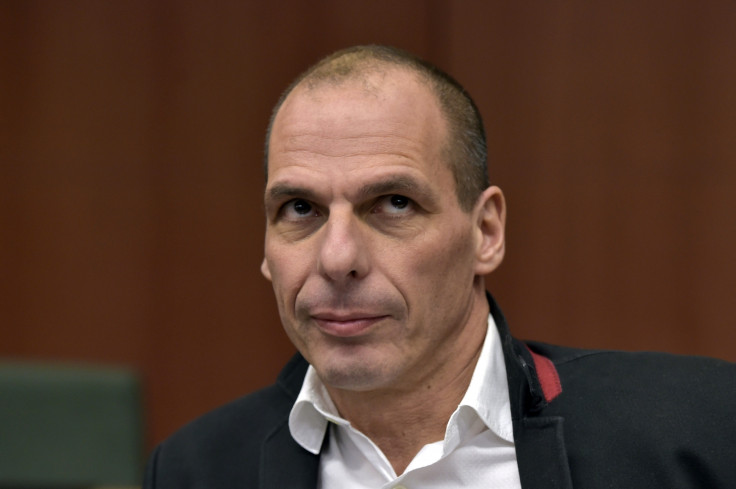Greek crisis: Ex-finance minister Varoufakis says Alexis Tsipras' reforms are 'going to fail'

Former Greek Finance Minister Yanis Varoufakis has told the BBC that economic reforms imposed on his country are "going to fail", ahead of talks on the current bailout deal.
Varoufakis stated that the programme will "go down in history as the greatest disaster of macroeconomic management ever".
He said: "This programme is going to fail whoever undertakes its implementation." When asked how this would take, he replied: "It has failed already."
The German parliament approved the opening of negotiations for the third bailout on 17 July. The bailout may total €86bn (£60bn) and hinges on further austerity measures.
The macroeconomic problem cited by Varoufakis concerns the structural trade imbalance between Greece and its north European neighbours, notably Germany. Normally a country can adjust for such imbalances by depreciating its currency, in tandem with interest rate adjustments. Because Greece is in the euro, it has neither option.
This means that its debts will almost certainly increase again soon after the third bailout. Austerity measures which cut Greek public expenditure may help to start to make its economy more competitive and make an impact on the trade imbalance. But whether the imbalance will be corrected over the medium to long term is unknown.
In the shorter term, there is no doubt that public sector cuts will reduce domestic demand to further shrink Greece's fragile, debt-burdened economy.
Even before the current bailout deal has been signed the IMF has stated that: "Greece's debt can now only be made sustainable through debt relief measures that go far beyond what Europe has been willing to consider so far".
A full federal government in Europe could potentially accommodate larger ongoing regional subsidies for Greece. But its advent appears unlikely before further bailouts are likely to be required in the coming years. Member states may well be unwilling to countenance a further series of large monetary transfers.
As for the Greek population, it is clear that they are already near to their limit in terms of the austerity they will bear as the price for the remaining in the euro and – possibly – the European Union itself.
For the time being they wish to stay put. A poll published on 18 July in the left-wing Efimerida Ton Syntaknon newspaper indicated that 70% of Greece's population would prefer to accept the bailout deal if it kept Greece in the euro.
The European Central Bank has agreed to release €900m (£624.7m) in emergency credit next week to the crippled Greek banking sector. But banks are to remain closed until at least Sunday and it remains unclear whether they will be able to reopen immediately.
Meanwhile, new ministers in Greek Prime Minister Alexis Tsipras' government were sworn in today after a reshuffle expelling dissidents from his cabinet, prior to negotiations for the country's third bailout package.
The sackings marked a schism with the main leftist faction in the ruling Syriza party following a rebellion over the bailout terms. Tsipras replaced them with allies of his own or from his coalition partners. His aim is to finalise the bailout before possibly holding new elections.
"Our aim is to negotiate hard for the terms of the agreement, not just to seal it, but on how it will be implemented. There are many vague terms in the text," said the newly appointed Labour Minister George Katrougalos.
Opinion polls indicate that Tsipras' popularity remains high. The Efimerida Ton Syntaknon poll indicates that Syriza would get 42.5% of the vote if an election were held now, almost double the conservative New Democracy's 21.5%.
© Copyright IBTimes 2025. All rights reserved.





















